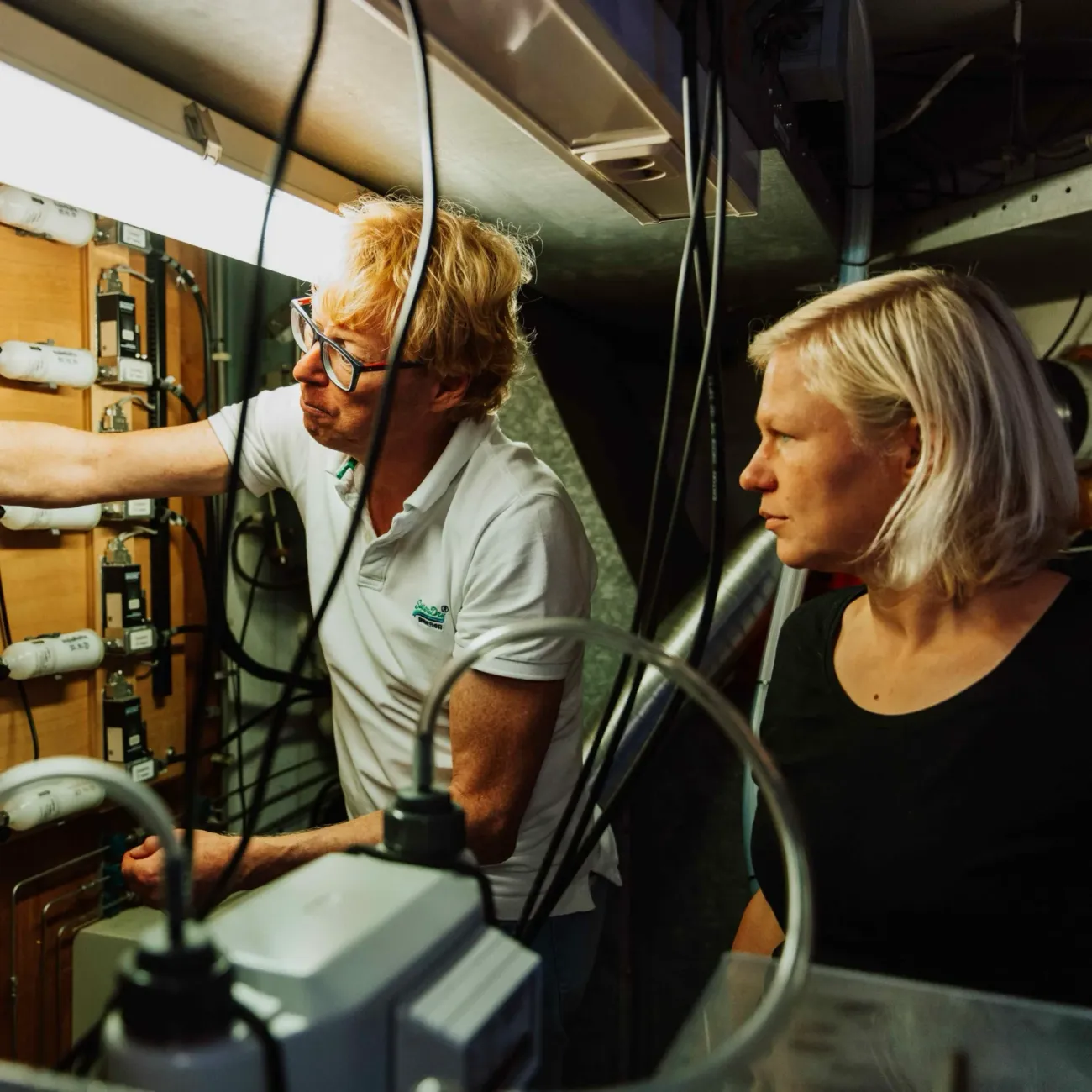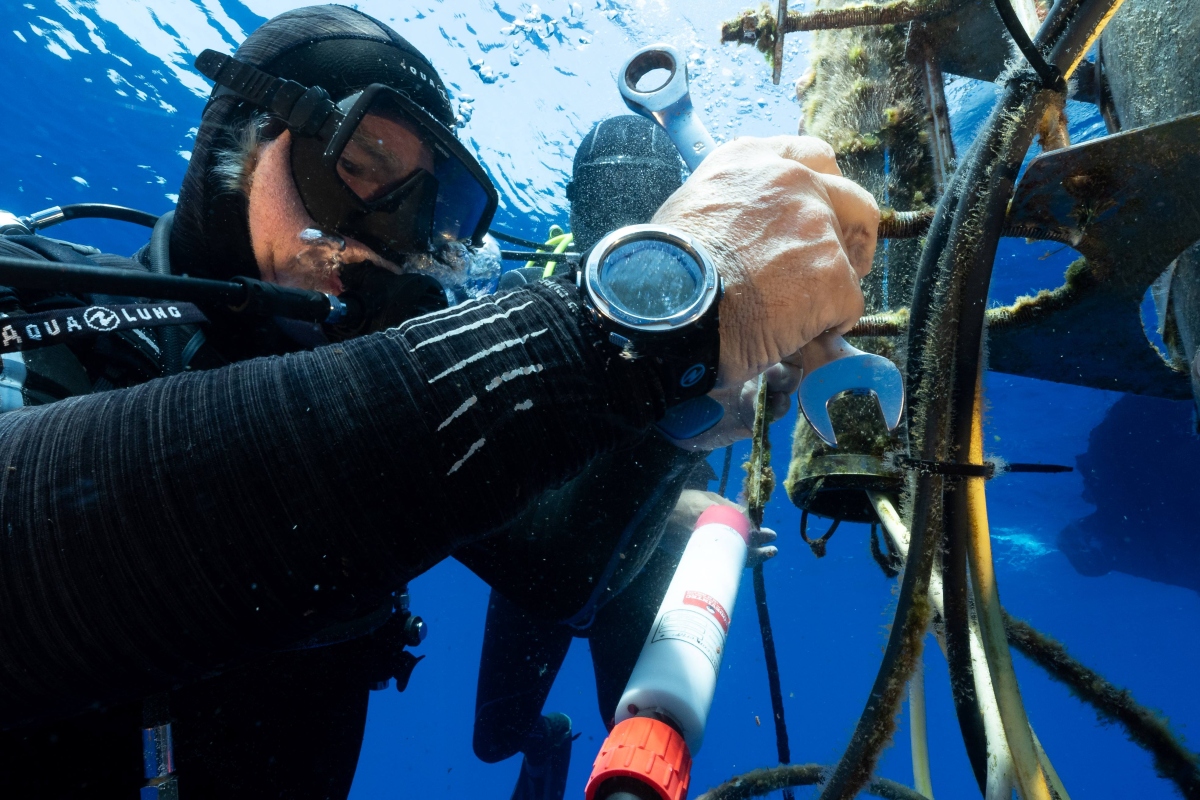
Scientific research has immense value both within and outside the scientific community. It impacts the ways that health, education, transport, housing, and migration policies are planned and implemented around the world. This research can support policymakers in their decisions.
ICOS Science Conference 2024 will feature presentations spanning across seventeen themes.
As in previous years, the conference programme has been designed to be multi- and interdisciplinary, focusing on scientific discoveries and their application in society.
Below are examples of some presentations from the policy-focused sessions: Theme 12 (‘Translating Scientific CO2 Emission Research into City Services’), Theme 13 (‘In Situ Data for Climate and Other Environmental Services and Policy Support’) and Theme 14 (‘Leveraging Direct Flux Measurements Beyond Academia for Real-World Applications’).
Greenhouse gas research contributes to city sustainability
Theme 12 of ICOS Science Conference (‘Translating Scientific CO2 Emission Research into City Services’) focuses on the ways scientific research on CO2 emissions can be implemented into city services. The sessions featuring this theme take place on Tuesday 10th and Thursday 12th September and include four oral and poster presentations.
This theme will propose diverse perspectives and insights on city services from the scientific community and from technology innovators. Presenters will explore the possibilities of using research and knowledge on CO2 emissions to build actionable and scalable city services.
In a poster presentation titled ‘From Science to Service: Leveraging Urban CO2 Monitoring for Actionable Science-based Policymaking – Insights from Paris Case Studies’ Arthur Pécondon-Lacroix from Origins.earth in France will discuss the benefits of local authorities implementing CO2 emissions monitoring projects in their cities. Pécondon-Lacroix and their team have studied sustainability initiatives in Paris. These initiatives, including ‘Paris Respire’ (‘Paris Breathes’), had a positive impact on lowering CO2 emissions in the city.
On a similar municipal level, Denis Hameau from the Dijon Metropole in France will explore the city of Dijon’s path to reaching carbon neutrality by the year 2050. In the poster presentation ‘Dijon Metropole Journey Towards Carbon Neutrality’, Hameau will discuss the importance of collaboration between local governance, research institutions and higher education in achieving this goal. As Hameau notes in the abstract, “Dijon underscores the transformative potential of data, not only as a tool for innovation but also as a means to empower citizens and enhance service delivery”.
Another approach to implementing city-level projects will be presented in a poster by Angelica Centanaro from Origins.earth in France. Alongside their team, Centanaro built a scenario planning tool which proposes different emissions outcomes based on policy measures. Since it can be tailored to local contexts, the research group suggests the tool to be used by cities in their efforts to reduce urban greenhouse gas emissions. This tool can be valuable in bridging the gap between policy goals and their material outcomes.
In situ data offers great potential for policy
Theme 13 of ICOS Science Conference (‘In Situ Data for Climate and other Environmental Services and Policy Support’) focuses on the value of in situ data for climate and environmental services and policymaking. The sessions featuring this theme take place on Wednesday 11th and Thursday 12th September and include 21 presentations.
Presenters in these sessions will explore the possibilities offered by in situ data, particularly for environmental services and policymaking. This theme will explore the pathways from scientific observations to climate-derived and other environmental services.
Adolphus Ifeka from the Federal University of Technology in Akure, Nigeria will present the value of in situ data for climate models and evidence-based policymaking, based on their experience at the Nigerian Meteorological Agency. This study, entitled ‘Leveraging In Situ Data for Climate and Environmental Policy Support’, will specifically examine the strengths of in situ data in increasing the precision and dependability of climate models. In the poster, Ifeka will also discuss the usage of in situ data in climate change mitigation plans.
In situ data can also be combined with space-borne datasets, suggests Simone Sabbatini from the CMCC Foundation (Euro-Mediterranean Center on Climate Change, Italy). In the poster presentation ‘Integration of Ground and Satellite Datasets for the Improvement of Accessibility to EO Resources: The OEMC Project’, Sabbatini will explore the Open-Earth-Monitor Cyberinfrastructure (OEMC) project. By using in situ data, the OEMC project aims to widen measurement coverage in the Earth Observation sector, increase the accuracy of outcomes, and strengthen the capabilities of entities such as the IPCC and UNFCCC.
Open access tools are indeed crucial for sharing information between stakeholders and supporting policymaking. In the research titled ‘The CDRatlas: A Platform to Visualize the Potential of CDR’, presented in a poster presentation by Steffen Swoboda from GEOMAR Helmholtz Centre for Ocean Research Kiel in Germany explored the use of the CDRatlas tool, an open-access web tool that provides information on carbon dioxide removal. Members of the scientific community and the public can access and use this information.
In a similar way, Andreea Calcan from the International Methane Emissions Observatory in France will discuss the IMEO’s methane dataset as presented in the oral presentation ‘Transparent Horizons: IMEO’s Methane Data Empowering Global Action’. Similar to the CDRatlas initiative, the dataset IMEO is in the process of establishing aims to offer a “global, centralized public record of empirically verified methane emissions”, as indicated in Calcan et al’s abstract.

Direct flux measurements have practical applications
Theme 14 of ICOS Science Conference (‘Leveraging Direct Flux Measurements Beyond Academia for Real-World Applications’) will delve into the real-world applications of direct flux measurements. The sessions featuring this theme take place on Thursday 12th September, and include twelve oral and poster presentations.
Direct flux measurements and their usage often stay within academic boundaries. This theme will explore the ways direct flux measurements can be leveraged for wider societal benefit.
Christian Fritz from Radboud University in the Netherlands will present their team’s research on monitoring GHG emissions from peatlands in northern Netherlands. Fritz’s team’s research process engaged multiple stakeholders as part of a jointly-conducted GHG monitoring program. In the oral presentation titled ‘The Mosaic Nature of Peatland Emission Calls for Co-Learning for Science-Based Mitigation Policy and Community Acceptance’, Fritz will present results on how drained peatlands impact CO2 emissions. Reflections on the team’s use of a collaborative methodology will also be presented.
As part of this theme, Marilyn Roland from the University of Antwerp in Belgium will be discussing their preliminary results from comparing carbon farming practices in Belgium. Roland’s team used two eddy covariance towers to measure the impact of carbon farming, a method which maximises the carbon storage of a plot of farming land. This research, presented in a poster presentation entitled ‘Quantifying the Impact of Different Carbon Farming Practices Using Eddy Covariance’ provides notable future pathways for sustainable farming.
Hear more from the researchers mentioned in this article by registering to ICOS Science Conference 2024.
Want to hear some of these presentations? Use the bookmarking tool on the programme platform to build your own programme.